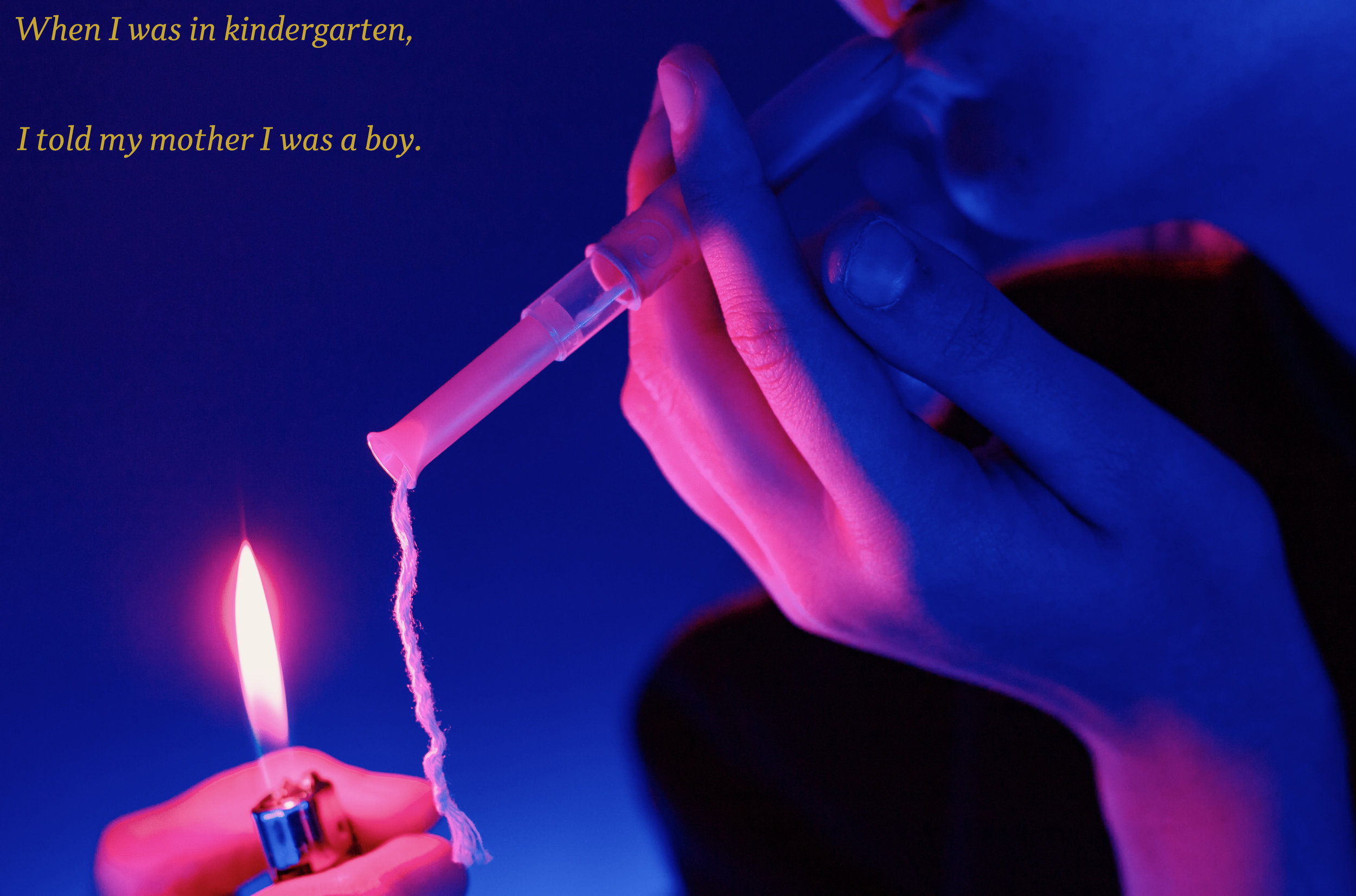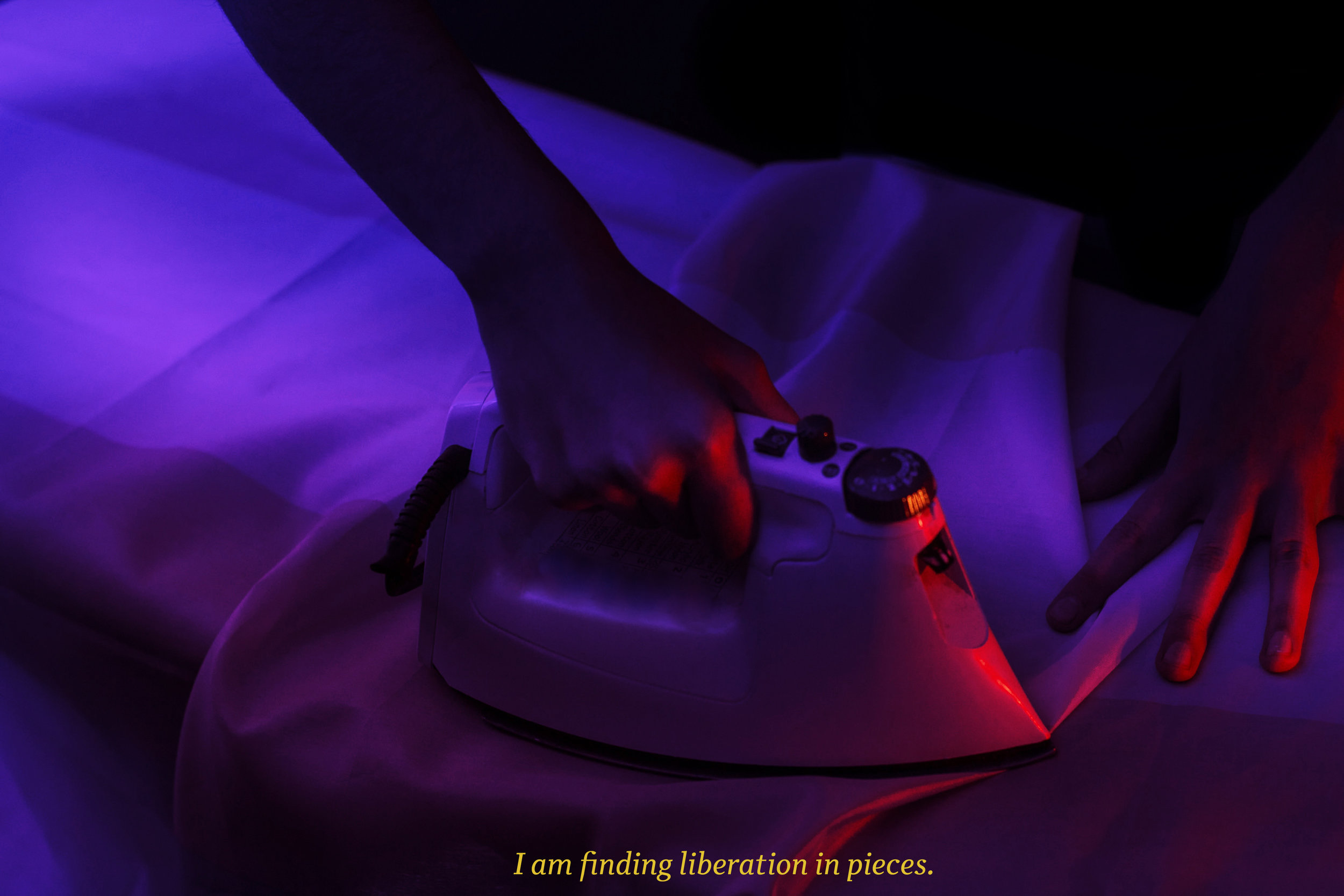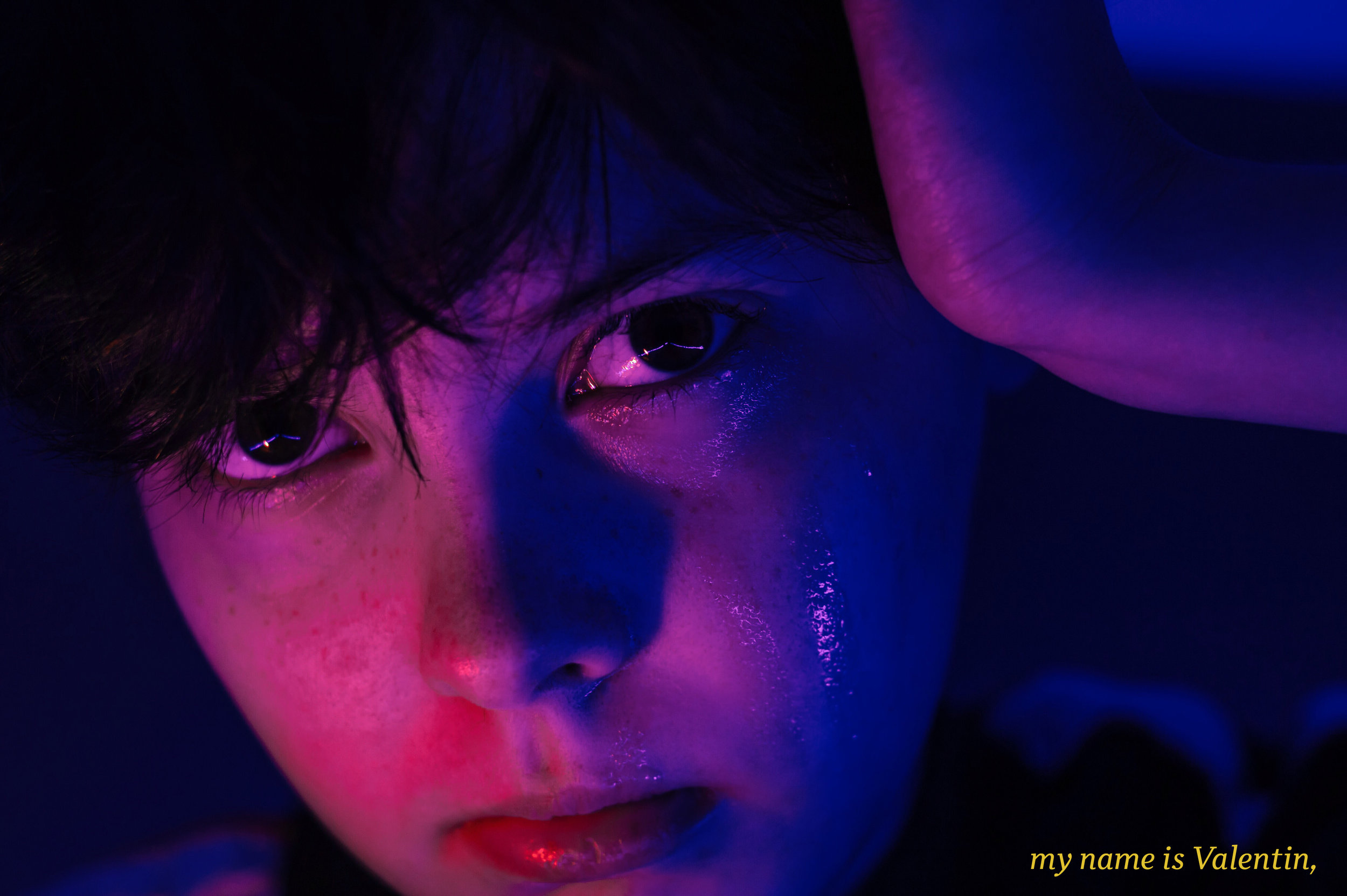Gender Renaissance




























Up until this summer, I have avoided reference to gender in my public work entirely. Even though I’ve known I wasn’t a girl since kindergarten, it wasn’t until I was 15 I was able to even say the word “trans” out loud to myself. Since then, the exorcism of shame from my body has been long, tumultuous, and deeply exhausting. Many of my milestones are ritualistic and mundane for a cis person, but the culmination of months of ego building for myself.
My mere existence often feels like an act of political rebellion. Self love feels like a miracle. And for a long time, romantic relationships were something beyond all of that, something I convinced myself I could never have.
All of this I have felt for the most part in silence, as the trans community typically does. The battle to be heard is a difficult one, and it is one many have died in the process of fighting. The American Academy of Pediatrics reports that more than half of trans masc teens have tried to kill themselves. The Human Rights Campaign records that 15 trans women in 2019 alone have been killed by violent or neglectful means (of which 14 were Black.) NPR finds that 31 percent of trans Americans lack regular access to healthcare, and 15 percent face unemployment. Our trans youth, our black trans women, our low income trans comrades- they are being killed. They are being killed by emotional and systemic abuse, by patriarchy, and by the exploitative nature of capitalism.
Silenced not only in our communities, but in the media, trans characters are often cis casted and are the victims of violence. We do not see trans teenagers who get to fall in love, go to parties, or be impulsive in movies. We do not see trans people live happy lives. We see them become perverted murderers if they are not murdered themselves. We see them used as punchlines and as objects of fetishization. These depictions reinforced a subconscious belief that has taken me years to unlearn; that if I am trans then I will never be loved, or safe, or healthy. Those types of trans people do not exist (or at least that’s what popular media would have me believe.)
This is the environment that shrouds a trans teenager’s body in shame, even 50 years after Stonewall.
In Gender Renaissance I seek to give only a glimpse into those routine struggles, to offer representation to an entire demographic that lacks an honest depiction. Yet there is still so much more work to be done. I want to see leading roles that are on HRT, who bind, who use they/them, who celebrate their bodies.
And there is work to be done within myself.
I am still unlearning transphobia. Even now, I feel mild fear releasing work that chronicles my relationship with my body in such a personal way. But I am growing, I am patient, and I am recommitting myself to vulnerability every day.